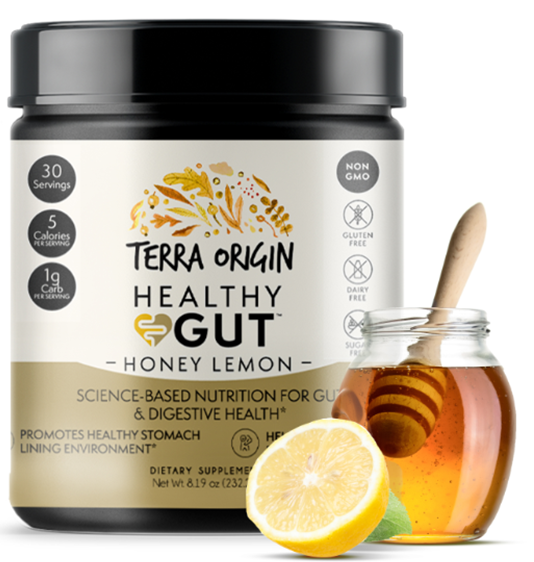Improve Digestion and Overall Health with a Quality Gut Health Supplement
Improve Digestion and Overall Health with a Quality Gut Health Supplement
Blog Article
Discover the Key to Food Digestion and Immunity With Digestive Tract Health Support

Recognizing Digestive Tract Health
Recognizing intestine wellness is crucial for total well-being, as it plays a considerable role in food digestion, resistance, and also psychological health and wellness. The gut, making up the intestinal tract, is in charge of damaging down food, taking in nutrients, and removing waste. A balanced intestine setting guarantees reliable digestion, permitting the body to utilize nutrients successfully.
Additionally, digestive tract health substantially influences the body immune system. The intestine houses a considerable portion of the body's immune cells, and a healthy gut can assist repel microorganisms and minimize inflammation. Disruptions in intestine health can lead to an over active immune response, possibly adding to autoimmune conditions and allergic reactions.
In addition, the gut is often described as the "2nd mind" due to the gut-brain axis, a complicated communication network connecting the intestine and the mind. This link affects state of mind, cognition, and psychological wellness. Problems such as dysbiosis, characterized by an imbalance in intestine bacteria, have been connected with mental wellness conditions, consisting of stress and anxiety and clinical depression.
The Digestive Tract Microbiome Explained

The digestive tract microbiome, a varied community of microorganisms residing in the intestinal tract, plays a critical duty in maintaining gastrointestinal health and overall well-being. Comprising trillions of microorganisms, viruses, fungis, and other microorganisms, this complicated environment aids in the food digestion of food, the synthesis of important nutrients, and the policy of metabolic processes.
Each individual's gut microbiome is distinct, influenced by variables such as diet plan, way of living, genetics, and ecological exposures. A well balanced microbiome supports ideal digestion by breaking down facility carbohydrates, producing short-chain fatty acids, and facilitating the absorption of nutrients. Conversely, a discrepancy, frequently referred to as dysbiosis, can result in digestive disorders, including short-tempered digestive tract syndrome (IBS) and inflammatory digestive tract illness (IBD)
Research has demonstrated that a varied microbiome is related to better health end results, highlighting the value of nutritional selections in supporting these microbes. Foods abundant in fiber, probiotics, and prebiotics, such as fruits, veggies, and fermented products, can advertise a healthy microbiome. Comprehending the digestive tract microbiome is crucial for creating targeted treatments focused on enhancing digestion health click to find out more and wellness and protecting against intestinal illness.

Link Between Food Digestion and Immunity
A robust connection exists between food digestion and immunity, highlighting the essential role of the gut in maintaining total health. The stomach system is home to trillions of bacteria that form the digestive tract microbiome, which substantially affects both immune feedbacks and digestive procedures. This complex ecosystem aids in breaking down food, absorbing nutrients, and giving crucial metabolites that sustain immune function.
When food digestion is efficient, the intestine barrier stays undamaged, protecting against hazardous pathogens from going into the blood stream. Approximately 70% of the immune system lives in the gut-associated lymphoid tissue (GALT), which interacts very closely with the intestine microbiome.
Tips for Sustaining Digestive Tract Wellness
Supporting digestive tract health is crucial for preserving both digestive effectiveness and a well-functioning body immune system. To foster optimal gut wellness, take into consideration integrating a number of sensible strategies right into your day-to-day routine.
First, prioritize hydration. Consuming adequate water sustains digestion and helps keep the mucosal cellular lining of the intestinal tracts. In addition, routine physical task can improve resource gut mobility and promote a diverse microbiome.
Conscious eating techniques are also essential. Chewing food thoroughly and consuming slowly can find out help digestion and avoid overindulging, which might worry the digestive tract. Moreover, managing stress via strategies such as reflection, yoga exercise, or deep-breathing exercises can favorably affect intestine wellness, as tension is known to interfere with digestion procedures.
Integrating prebiotics and probiotics right into your regimen is another reliable strategy. While details foods will certainly be reviewed later on, understanding the importance of these parts is important. Prebiotics work as food for beneficial intestine microorganisms, while probiotics introduce real-time helpful microorganisms.
Finally, prevent too much use of antibiotics, as they can interrupt the balance of gut plants. By complying with these tips, you can substantially add to the upkeep of a healthy and balanced intestine, which is necessary for overall wellness and vigor.
Foods That Promote Intestine Health

Fermented foods, such as yogurt, kimchi, kefir, and sauerkraut, are rich in probiotics, which are helpful germs that support gut flora and boost digestion. These foods can help bring back equilibrium in the gut, especially after antibiotic usage or digestive system disruptions.
In enhancement to fermented alternatives, prebiotic foods, such as garlic, onions, asparagus, and bananas, offer as sustenance for these probiotics, promoting their development and activity. These soluble fibers sustain intestine motility and can reduce issues like bowel irregularity.
Furthermore, including high-fiber foods, including entire grains, vegetables, veggies, and fruits, is essential for maintaining a healthy gut. Fiber aids in routine defecation and aids prevent digestion disorders.
Last but not least, omega-3 fatty acids discovered in fatty fish, flaxseeds, and walnuts have anti-inflammatory buildings that can further sustain digestive tract health and wellness. Highlighting these foods in your diet can cause a durable digestion system and enhanced immune function.
Conclusion
Finally, prioritizing digestive tract health is necessary for optimizing food digestion and enhancing immunity. A balanced digestive tract microbiome, influenced by nutritional options and way of living variables, plays a crucial function in nutrient absorption and inflammation reduction. Including fermented foods, prebiotics, and high-fiber alternatives, alongside proper hydration and anxiety administration, can dramatically advertise intestine health. By embracing these methods, individuals can sustain general health and wellness and vitality, opening the potential advantages of a well-functioning intestinal system.
Recognizing intestine health is important for general well-being, as it plays a significant role in digestion, resistance, and even psychological wellness. The intestine houses a substantial portion of the body's immune cells, and a healthy and balanced digestive tract can help fend off pathogens and lower inflammation.Additionally, the intestine is commonly referred to as the "2nd mind" due to the gut-brain axis, a complicated communication network linking the intestine and the brain.A robust connection exists between digestion and resistance, highlighting the important function of the gut in preserving general wellness.In conclusion, focusing on gut wellness is necessary for maximizing digestion and improving resistance.
Report this page